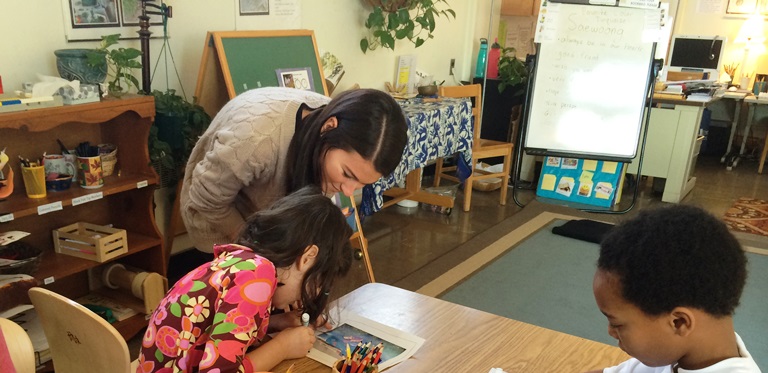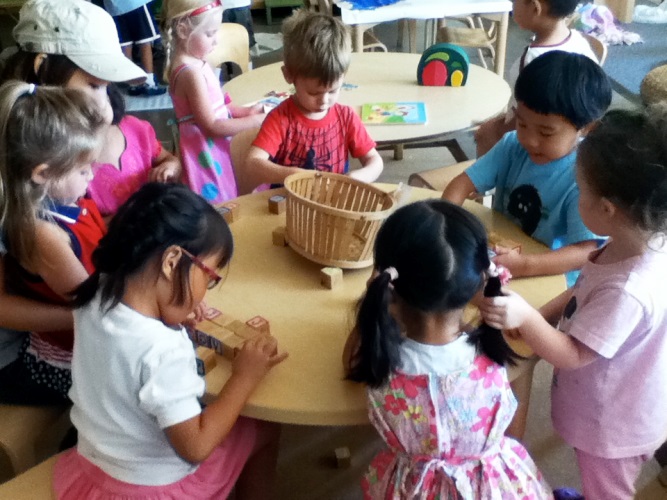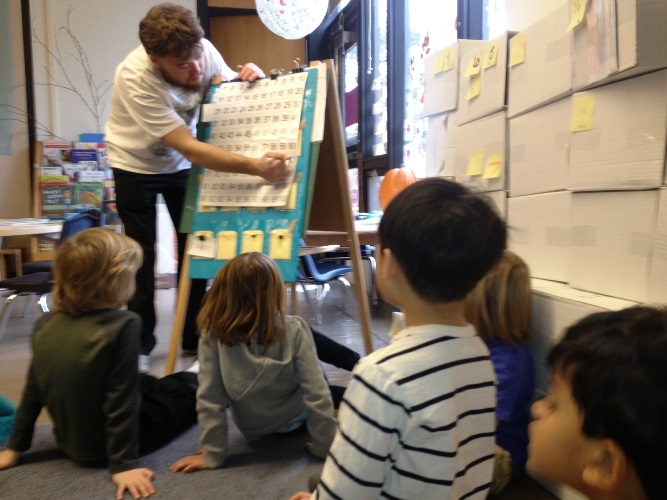College's University Primary School nurtures innovative learning community for students, teachers
by Nicole Mechling / May 12, 2014


“We’re dedicated to nurturing meaningful experiences for children,” said Ali Lewis Ed.D ’10 EOL, fourth-year director of University Primary. “We’re also dedicated to the professional development of teachers and the teaching community.”
University Primary began as a research project more than four decades ago and has committed itself to academic development ever since. The school features three classes—preschool, kindergarten-first grade, and second grade-third grade—and will expand to a joint fourth and fifth grade in the 2014-15 academic year.
At University Primary, head teachers, teaching assistants, and volunteers collaborate on a daily basis, discovering new techniques and ways to facilitate learning for diverse groups of students. Faculty members and students—both graduate and undergraduate—conduct research projects at the school to learn the benefits and shortcomings of various teaching techniques and, in turn, help improve the overall education process.
Staci Fay, a sophomore in the College of Education working toward a bachelor’s degree in Elementary Education, has worked with University Primary throughout the 2014 spring semester to evaluate the school’s disciplinary approaches.
“The University of Illinois College of Education generates great rankings, has an abundance of resources for students, and has spectacular professors,” Fay said of why she chose to attend and conduct research at Illinois. “I have had access to more opportunities than I ever thought I would have as an undergraduate student.”
Faculty and graduate researchers take advantage of the lab school’s untraditional education practices and proximity to the University, expanding the breadth and depth of education research on both a national and international scale.
Current research projects cover a variety of topics, including studies of both the children—foreign language acquisition and cognitive development—and the teachers—assumptions of what is most important for children to learn.
While researchers publish their findings and pass along what they have learned, University Primary’s teachers learn something new every day as well.
“It’s a good place for teachers to learn what kind of teacher they are,” head preschool teacher Nora Miller Ed.M. ’13 Spec. Ed. said. “You have room to be you and figure out how you are able to be the best teacher you can be.”
Miller started at University Primary as a substitute teacher and became a teaching assistant while pursuing a graduate degree at Illinois. She credits her assistantship with helping her discover the importance of catering to students’ and teachers’ varying personalities.
Marcia Burns ’99 EDM Ed., head second- and third-grade teacher and Miller’s former teaching mentor, trained as a teaching assistant at University Primary prior to receiving her master’s degree from Illinois in 1999. She returned as a head teacher in 2006 and, like Miller, recognizes the value in identifying the individuality of each child.
“What stood out to me early on was the strong value of the individual child,” Burns said. “To this day, it’s a positive challenge to plan for and support students of all different developmental levels.”

Students are currently exploring the practical and cultural significance of tools, studying instruments, such as screwdrivers, from social, scientific, artistic, mathematical, and literary perspectives.
Burns admitted she is not an expert in electrical engineering, but she is excited to help her students learn about tools—with their assistance.
“The goal is to have the children talk and question,” Miller said. “It’s really about what the children are wondering and learning how to help them solve the problem.”
Learn more about University Primary School.